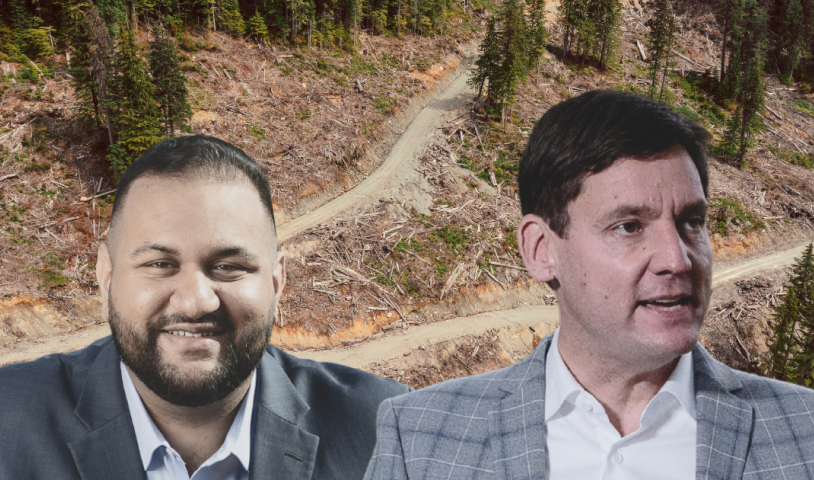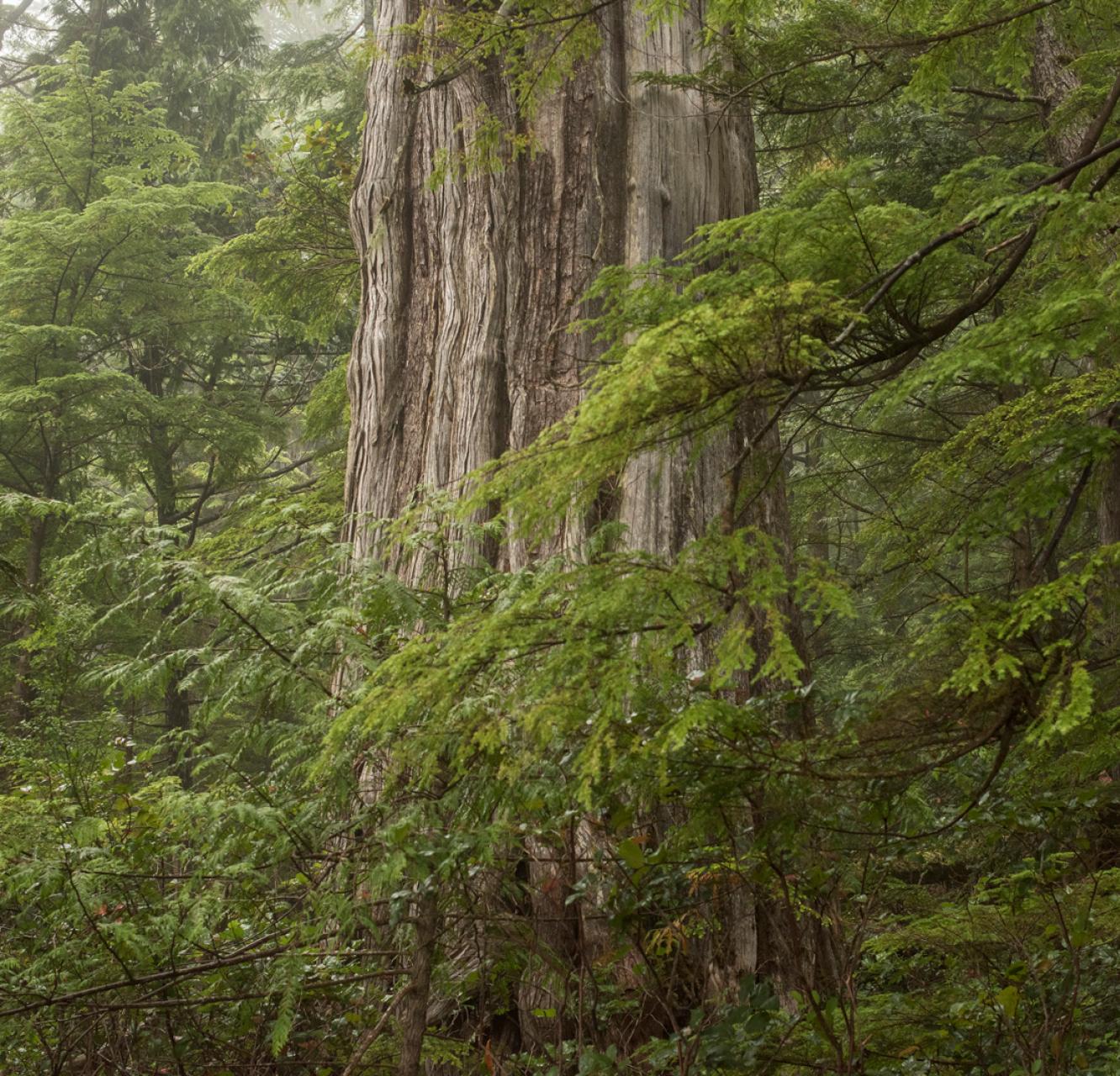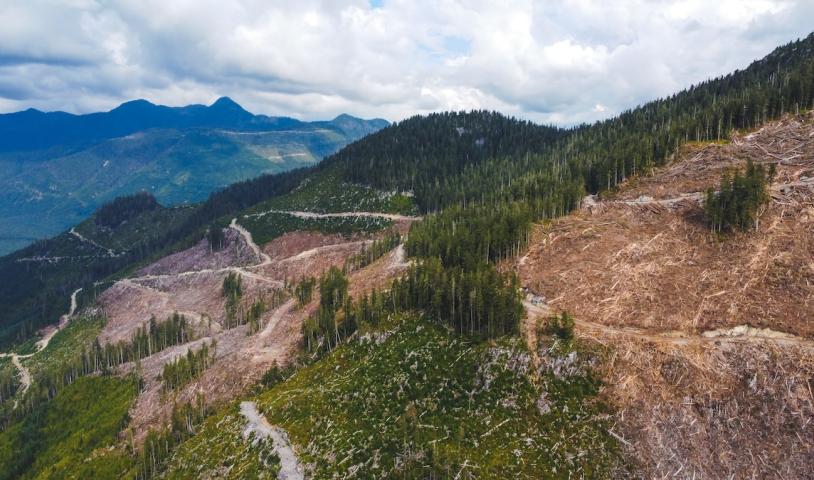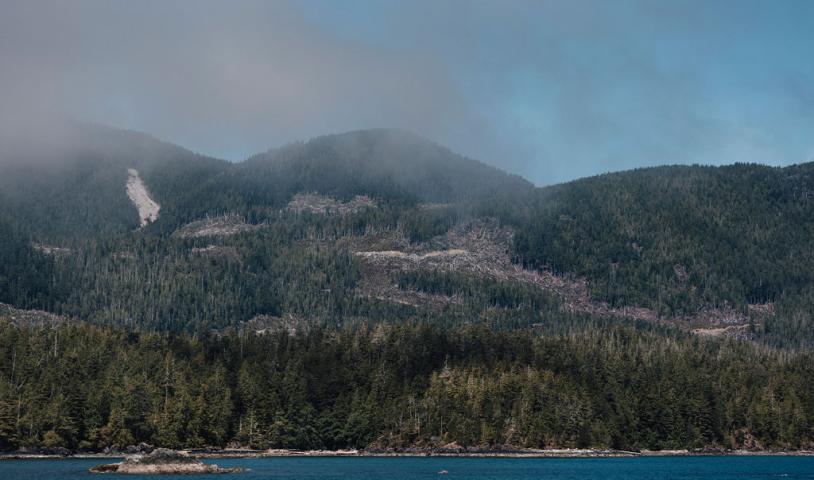Five years on, B.C. fails to deliver Old Growth Strategic Review "paradigm shift"
Tuesday, September 9, 2025
Wilderness Committee slams the provincial government for inaction on forest promises while unrest continues
VICTORIA/UNCEDED lək̓ʷəŋən TERRITORIES — Tomorrow is the fifth anniversary of the B.C. government's own Old Growth Strategic Review (OGSR), which marked a turning point in the province’s relationship with forests in 2020. Sadly, the lack of meaningful action on it since then continues to drive the destruction of irreplaceable ancient forests and deepen public distrust in forest management.
None of the OGSR’s 14 key recommendations, aimed at shifting the province away from unsustainable, status quo logging practices, have been fully implemented. Instead of decisive action, the government has delivered a series of confusing and opaque deferrals, initiated additional layers of review and consultation, and returned to the same old narrative that “forests are being managed well.”
This shift in tone became especially evident after Ravi Parmar took over as Minister of Forests, and the province began downplaying the ecological crisis and promoting the industry as a clean, sustainable economic driver.
“We were promised a paradigm shift. Instead, we got business-as-usual forest management with a rebranded message,” said Forest Campaigner Tobyn Neame. “Ancient forests are still being logged and ecosystems are still collapsing. Meanwhile, the public is led to believe the province is protecting old-growth.”
One of the ways the province claimed they would implement the OGSR was through a biodiversity and ecosystem health framework. However, after showing a draft nearly two years ago, they have not released the framework. Old-growth forests are critical for biodiversity — they provide rare, complex habitats that support species found nowhere else. Many plants and animals, including at-risk species like southern mountain caribou and northern spotted owls, rely on these ancient ecosystems for their survival, and cannot thrive in younger, managed forests.
“We need a biodiversity and ecosystem health law, not just a flimsy framework that the province is backpedaling on releasing. Logging in southern mountain caribou habitat is pushing these already threatened animals to the brink of extinction,” said Conservation and Policy Campaigner Lucero Gonzales.
“At the end of the day, what species at risk in B.C. need is habitat protection. Half measures, broken promises and endless delays will not save these species from extinction,” she added.
One of the OGSR’s core recommendations — to defer logging in the most at-risk old-growth forests — has been selectively and opaquely applied. Meanwhile, ancient forests are being clear-cut, sometimes without consent from First Nations, like the Ma’amtagila Nation, stewarding the land.
To make matters worse, the province has intensified its messaging that the forest industry must become an even bigger “economic engine of Canada” in the face of rising U.S. tariffs. Pushing industry expansion at the expense of environmental commitments and Indigenous Rights will only worsen the ecological and social crises.
“You can’t build a sustainable economy on a non-renewable resource,” exclaimed Neame. “Old-growth forests take centuries to grow. Once they’re gone, they’re gone. Contrary to what the industry tells you, you can’t clearcut old-growth twice.”
Worsening wildfire seasons are making communities across B.C. more vulnerable, adding urgency to the crisis. Contrary to industry spin, logging old-growth forests does not reduce wildfire risk — it increases it. Ancient forests are more fire-resistant than second-growth tree plantations, which are drier and more flammable.
“The science is clear. Old-growth keeps water in the landscape, creates shade and slows fire spread. Logging the forests not only destroys biodiversity — it puts people at risk,” said Neame.
The government’s failure to act undermines one of the OGSR’s most urgent goals: restoring public trust in forest management. With continued logging in endangered old-growth forests and few legislative changes to protect them, that trust remains broken. Recent blockades in the Walbran watershed on Pacheedaht Territory highlight this broken trust and lack of change over the last five years.
As the BC NDP, under Minister Parmar, continues to sideline its environmental promises in favour of short-term industry gains, advocates say the window to act is closing and ecosystems and wildlife are already paying the price.
The Wilderness Committee is calling on the B.C. government to fully implement all 14 OGSR recommendations, create a Biodiversity and Ecosystem health Law and end the use of forest policy as a tool to greenlight logging expansion under the guise of economic recovery, now.
“This isn’t just about trees. It’s about climate, community safety, Indigenous Rights and the future of forests in B.C.,” said Neame. “The longer the province delays, the more we’ll all lose.”
-30-
For media inquiries, please contact:
Tobyn Neame | Forest Campaigner
403-461-5151, tobyn@wildernesscommittee.org
Lucero Gonzalez | Conservation and Policy Campaigner
604-700-3280, lucero@wildernesscommittee.org





